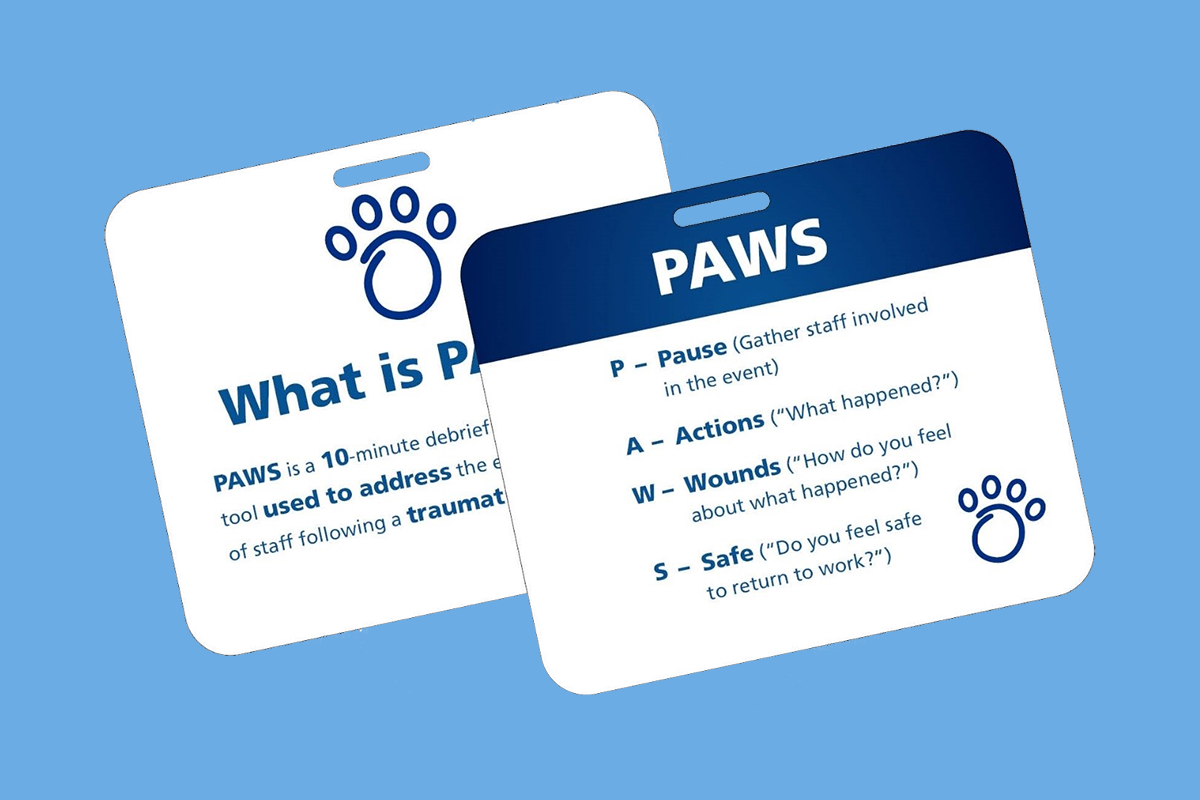West Shore Region hospitals adopt PAWS debriefing tool to help staff process distressing events

Sister Mary Joseph Albright, vice president of mission integration at Holy Spirit Medical Center, has seen many changes in health care during her seven years of service. What hasn’t changed is the stress and emotional turmoil that comes with a profession in health care – feelings of grief, anxiety, exhaustion and fear.
Albright says employees’ emotional and physical well-being has always been a priority. But after the pandemic hit, she began to look for a more structured program to support staff. The answer came from director of Pastoral Care Services – Chaplain Services at Hershey Medical Center. He had done extensive research on the topic and introduced a program at Hershey Medical Center for nurses experiencing burnout and stress.
After consulting with Simmons, Albright saw an opportunity to “row in the same direction.” She modified that program to fit the West Shore Region medical centers’ culture and needs, and in late spring 2022 introduced PAWS, a 10-minute debriefing tool for health care staff and leaders to process a distressing event.
PAWS stands for:
- Pause for PAWS
- Actions – What happened?
- Wounds – How do you feel about what happened?
- Safety – Are you safe to return to work?
Anyone who is involved in a distressing event can initiate PAWS, which begins with contacting the on-duty chaplain by calling the switchboard. The program gives employees a chance to step away for an intentional debrief after the event to validate feelings and normalize the experience. If they need additional support, they can speak with their manager about options including an extended break to decompress.
“PAWS is an extension of self-care,” Sister Mary Joseph explained. “This is about our humanness. You can’t give what you don’t have. I have been in those situations. I understand.”
PAWS also strengthens team relationships. The activation is personal. However, when an employee recognizes the need to step back and process emotional distress or frustration, they also are signaling to their colleagues that they can’t be fully focused on their work. This is critical for patient safety as well.
One employee who initiated PAWS shared, “I felt anxious and on edge, but now I feel relief.” Another employee said that she did not feel safe returning to work because, “The patients I care for won’t have my full attention. I’m still reliving the traumatic event. I need time to recover.” Her manager sent her home for the remainder of her shift, and colleagues covered for her. This is reflective of how teams care for and support one another and manage up.
Sister Mary Joseph has been introducing PAWS during West Shore Region staff orientations and educating leadership. She says leaders are committed to creating a caring and responsive environment for all employees, so they can deliver the best care and services.
“We’ve been doing this in different ways for a long time, but now we have a more formal process and a name for it.”
Badge buddies containing PAWS information are available for order on the Digital Store Front.
If you're having trouble accessing this content, or would like it in another format, please email Penn State Health Marketing & Communications.
